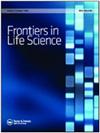Feeding the world into the future – food and nutrition security: the role of food science and technology†
Q1 Biochemistry, Genetics and Molecular Biology
引用次数: 67
Abstract
ABSTRACT By mid-century, the world population will surpass 9 billion people, meaning higher demand for available food, water, arable land and environmental impacts. Food safety issues, nutrition deficiencies, postharvest losses, regulation inconsistencies and consumer attitudes are all striking challenges which must be met in maintaining food security and sustainability. Possible solutions include advancements in food processing technologies, nanotechnology, innovative food formulations and the use of genomic approaches manifested in examples such as alternative protein sources, insect flour, nutrigenomics, 3D food printing, biomimicry, food engineering and merging technology. International organizations like the International Union of Food Science and Technology also play important roles in securing the world’s food supplies by providing expertise through their respective country memberships. The present review addresses the food science and technology roles in meeting current challenges and investigates possible solutions to feed the world in the near future.养活世界走向未来——粮食和营养安全:食品科学与技术的作用†
到本世纪中叶,世界人口将超过90亿,这意味着对食物、水、耕地的需求将会增加,对环境的影响也会增加。食品安全问题、营养缺乏、采后损失、监管不一致和消费者态度都是在维持粮食安全和可持续性方面必须应对的突出挑战。可能的解决方案包括食品加工技术的进步、纳米技术、创新食品配方和基因组方法的使用,例如替代蛋白质来源、昆虫粉、营养基因组学、3D食品打印、仿生学、食品工程和合并技术。国际食品科学和技术联盟等国际组织也通过其各自的国家成员提供专业知识,在确保世界粮食供应方面发挥重要作用。本综述论述了食品科学技术在应对当前挑战中的作用,并探讨了在不久的将来养活世界的可能解决方案。
本文章由计算机程序翻译,如有差异,请以英文原文为准。
求助全文
约1分钟内获得全文
求助全文
来源期刊

Frontiers in Life Science
MULTIDISCIPLINARY SCIENCES-
CiteScore
5.50
自引率
0.00%
发文量
0
期刊介绍:
Frontiers in Life Science publishes high quality and innovative research at the frontier of biology with an emphasis on interdisciplinary research. We particularly encourage manuscripts that lie at the interface of the life sciences and either the more quantitative sciences (including chemistry, physics, mathematics, and informatics) or the social sciences (philosophy, anthropology, sociology and epistemology). We believe that these various disciplines can all contribute to biological research and provide original insights to the most recurrent questions.
 求助内容:
求助内容: 应助结果提醒方式:
应助结果提醒方式:


